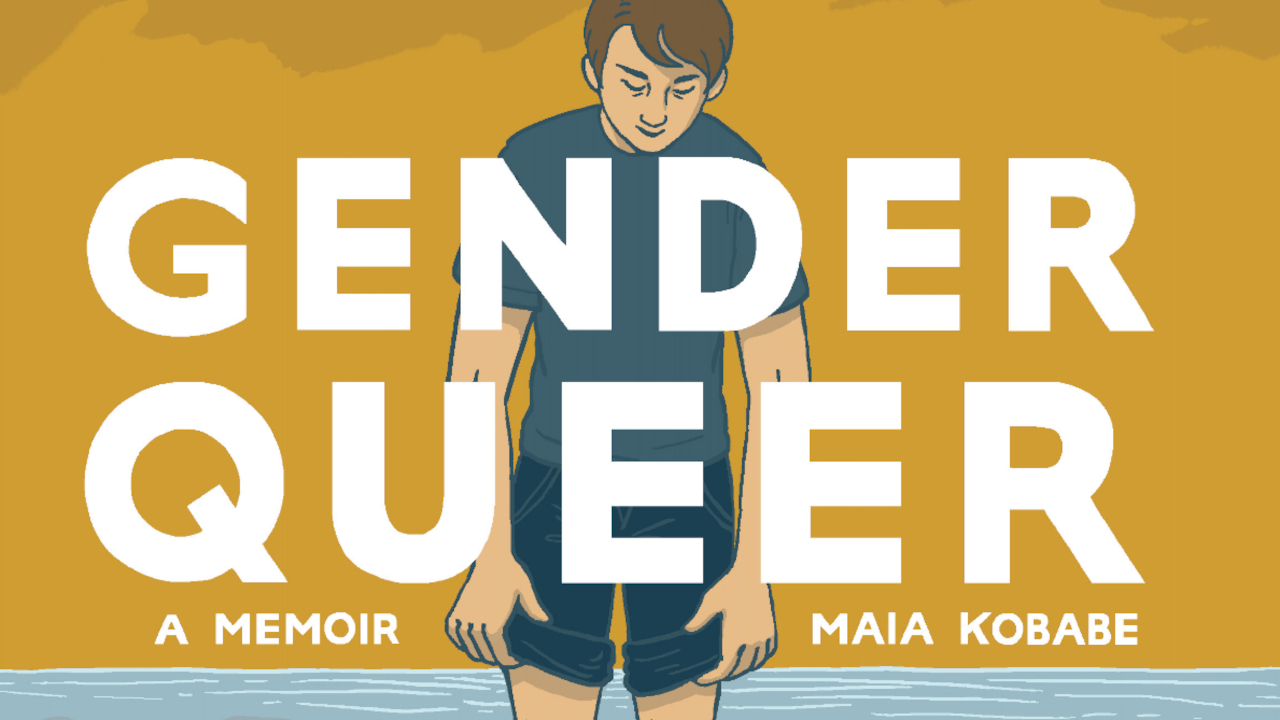‘Gender Queer’ Author Maia Kobabe Reflects on LGBTQ Book Bans for ‘The Nib’s Final Day

The two-time Pulitzer Prize finalist indie comics publisher The Nib concludes its decade-long run today with a particularly poignant short comic by Gender Queer author Maia Kobabe. Published in 2019 by Oni Press, Gender Queer is one part-memoir, one-part guide to understanding gender and sexuality. Kobabe started it as a way of telling eir family about eir being nonbinary and asexual, and it’s since become a beloved book both for its content and what it represents.
In “I Made the Most Banned Book in America,” Kobabe reflects on what has been a very surprising run for eir book. Initially, e didn’t think anyone would read it, but it was championed by the American Library Association and librarians from the jump, selling through three print runs in its debut year.
Unfortunately, for the last two years, PEN America reports that it’s been the most banned book in America. The ALA additionally reports that Gender Queer was the most challenged book in schools in libraries, with 151 documented attempts to censor it across the country.
Beyond the contention around eir book, Kobabe also reflects on the terrifying rise in book bans over the last two years. A chart representing data from the ALA shows that the number of unique book titles challenged in the U.S. by year has risen astronomically: In 2020, 223 books were challenged. In 2021, 1,858 were challenged, and in 2022, a whopping 2,571 were challenged. The majority of challenged books contain LGBTQIA+ themes or characters of color (41 percent and 40 percent, respectively), and they are being banned in a pattern that mirrors widespread legislative attacks on LGBTQIA+ people.
The Hoopla and Libby/Overdrive apps, which allow users to access digital library books, are banned in Mississippi to anyone under 18 years old. Some libraries in the state won’t administer library cards to any minor without parental permission. A public library in Jamestown, Michigan will close in mid-2024 because the town’s citizens voted to cut the library’s funding after librarians refused to remove Gender Queer and several other titles from shelves. The library in a small town in Washington state is also under threat of dissolution for this reason.
Librarians themselves are on the front lines of this fight, defending titles and refusing to follow orders to move young adult books to the adult section, or to remove certain titles from shelves altogether. The Brooklyn Public Library has offered free eCards to anyone in the U.S. aged 13–21 in order to circumvent bans in other states. (You can email booksunbanned@bklynlibrary.org to request a free eCard.) Educators are also fighting against these challenges. Summer Boismeir from Norman, Oklahoma was fired after sharing the QR code for Brooklyn Public Library’s free eCard sign-up; she now works for the BPL directly.
In June, Illinois became the first state to ban book bans, and at library and school board meetings across the country, people are showing up to fight against book bans and support Pride Month events, drag queen story hours, and other events that have been sending conservative lawmakers and pundits into a dangerous tizzy.
Kobabe covers most of this in “I Made the Most Banned Book in America,” as well as an especially disturbing statistic: 60 percent of 1,000 book challenges analyzed by The Washington Post from the 2021–2022 school year were submitted by just 11 individuals. One man submitted 92 titles. Although book bans have become a hot topic, the fear-mongering around diverse books comes from a tiny group of people affecting a wildly disproportionate percentage of the population. It’s a scary thought, but it also offers hope.
If 11 people can do that much damage, imagine how much good dozens, hundreds, or thousands of people can do by fighting back and refusing to cow to this kind of bigotry? Some ways you can help are to show up at board meetings, send emails to your local legislature, hold book drives, fill Little Free Library locations in your town with banned books, and be loud about your support of these titles, their authors, and the librarians and educators who champion them.
Kobabe’s short comic is the perfect note on which to end The Nib and an important reminder of the power of collective action. The publication may be closing, but you can donate to maintain its archives and get free PDF downloads of all 15 issues of the Eisner- and Ignatz-Award-winning magazine. The Nib is dead, long live The Nib.
You can order copies of Gender Queer through Bookshop or find it at your local bookstore. Visit Kobabe’s website to learn more about and support eir other work.
(featured image: Oni Press)
Have a tip we should know? tips@themarysue.com